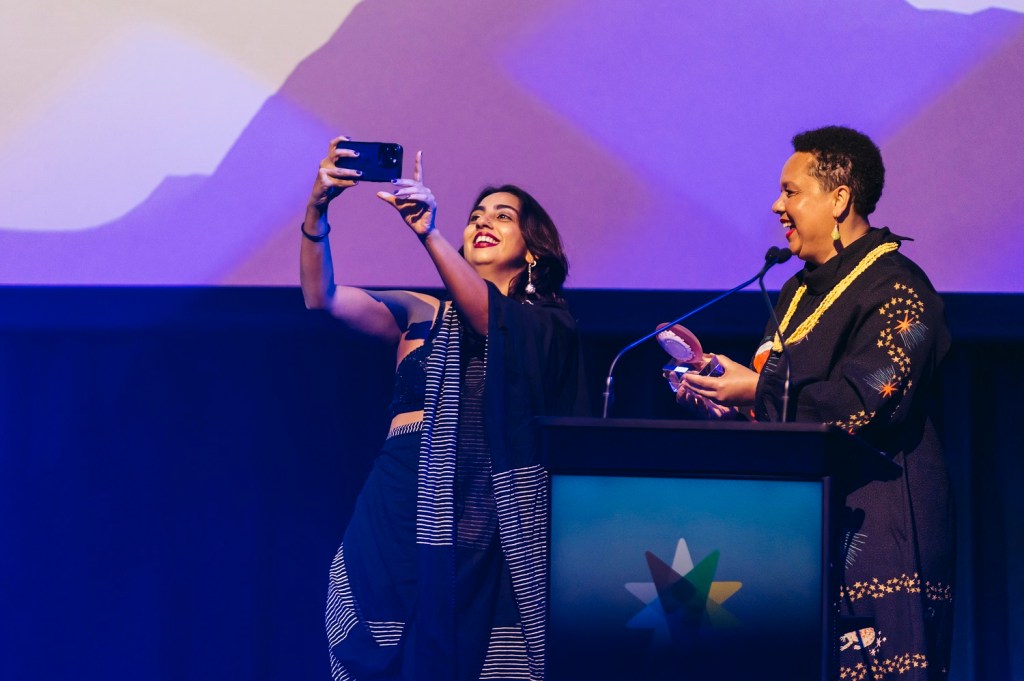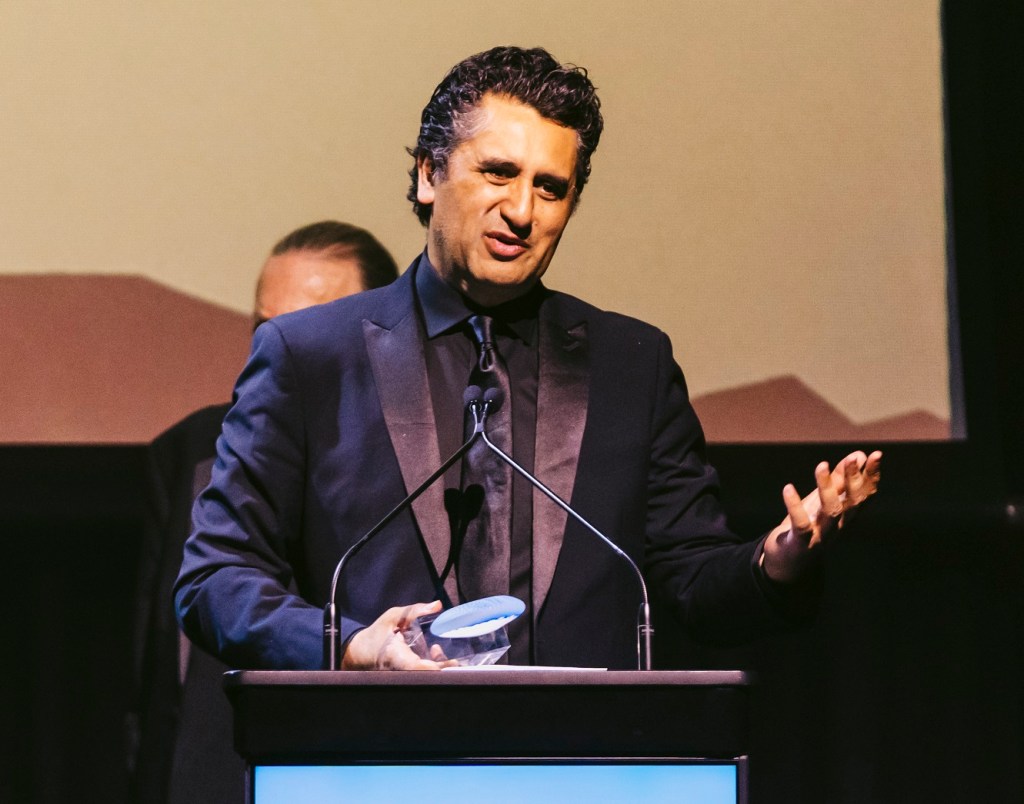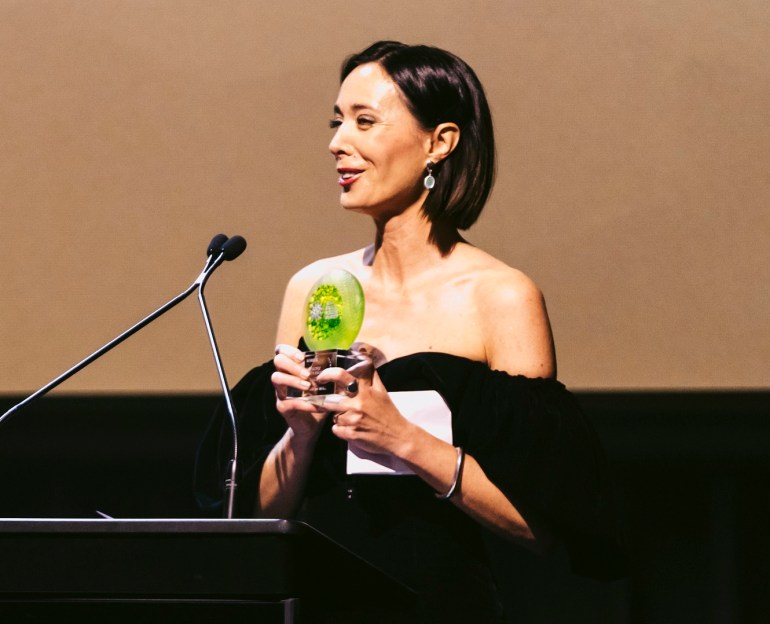A drama about a dedicated Georgian OB-GYN that comes under scrutiny following the death of a newborn was crowned Best Film at Saturday’s Asia Pacific Screen Awards (APSA) on the Gold Coast.
Dea Kulumbegashvili’s April, a co-production between First Picture, Frenesy Film Company and Memo Pictures, triumphed over Payal Kapadia’s All We Imagine as Light, Yoko Yamanaka’s Desert of Namibia, Neo Sora’s Happyend, and Xiaoxuan Jiang’s To Kill a Mongolian Horse to claim this year’s prize, which lead actress Ia Sukhitashvili accepted in person, along with the award for Best Performance.
It’s the second feature for Kulumbegashvili, who was a recipient of an MPA APSA Academy Film Fund grant for early development of the film, produced by David Zerat, Ilan Amouyal, Luca Guadagnino, Francesco Melzi d’Eril, Archil Gelovani, Gabriele Moratti and Alexandra Rossi.
All We Imagine as Light, which joined April in leading the nominations with recognition across five categories, was awarded this year’s Grand Jury prize. Set in Mumbai, the romantic drama details the experience of two working-class nurses navigating a nocturnal landscape. Thomas Hakim and Julien Graff produced the film.

There was more joy for female Indian directors in the Best Youth Film category, with Lakshmipriya Devi triumphing alongside producers Alan McAlex, Vikesh Bhutani, Ritesh Sidhwani, Farhan Akhtar, and Shujaat Saudagar for Boong, the story of a young boy in remote Manipur who goes on an adventure to reunite his family.
Of the other major awards, Palestinian and Israeli filmmakers Basel Adra, Rachel Szor, Hamdan Ballal, and Yuval Abraham received Best Documentary for No Other Land, which depicts the destruction of the occupied West Bank’s Masafer Yatta by Israeli soldiers; Georgian director Tato Kotetishvili was named Best Director for his debut feature Holy Electricity, a dark comedy about cousins that sell neon crucifixes door to door in Tbilisi; Turkish filmmaker Selman Nacar won Best Screenplay for legal thriller Hesitation Wound; and French cinematographer Michaël Capron took home Best Cinematography for Taiwanese drama Mongrel.
Carl Joseph Papa’s adult sci-fi animation The Missing (Iti Mapukpukaw, Philippines) was recognised with Best Animated Film, beating out Australian hopes Magic Beach and Memoir of a Snail.
There was, however, cause for celebration across the Tasman, as New Zealand producer, actor and APSA winner Cliff Curtis was given this year’s FIAPF Award. Determined by APSA founding partner FIAPF–International Federation of Film Producers Associations, the accolade recognises outstanding achievement in film in the Asia Pacific region.
In accepting the award, Curtis said his heart was “filled with gratitude for the privilege of working alongside the artists, collaborators, and mentors whose works have made this award possible”.

“A good meal feeds the body for that day a great story sustains the hearts and minds of generations past, present and future,” he said.
“Thank you to FIAPF and to APSA for recognising Asia Pacific voices and bringing us together to share our stories of humanity, courage, and purpose.”
Saturday’s ceremony also included the announcement of the US$25,000 Motion Picture Association (MPA) APSA Academy Film Fund grants, which this year will go to recipients are producer Estelle Fialon for animated documentary Outside Kabul, producer Yulia Evina Bhara and writer/director Makbul Mubarak for Indonesian feature Watch It Burn, cinematographer Robbin Yuchao Feng and director Qiu Jiongjiong for Chinese feature Fuxi: Joy in Four Chapters and producer/writer Aiko Masubuchi with writer/director Neo Sora for youth feature A Trip to Australia.
Reflecting on the awards, APSA chair Tracey Vieira paid tribute to the emerging talent in the region.
“As the next generation of filmmakers comes to the fore, with a record-breaking number of emerging filmmakers, the stories on screen represent the most diverse collection of voices ever heard at APSA,” she said.
“Through the expertly crafted storytelling of the winners, we are able to explore a more expansive view of the world around us, amplifying the compelling voices, experiences and lives of those otherwise not often seen: nurses, carers, lawyers, women’s health workers and children.
“Thanks to our growing partnerships with AW Jewel, The Langham, the City of Gold Coast, Screen Queensland, the MPA, The Post Lounge, Top 51 World Filmmakers Club, and Screen Australia, the future of APSA and the filmmaking it celebrates looks brighter than ever.”
A total of 31 films from 23 Asia Pacific countries contested this year’s awards, which were hosted by comedian Nina Oyama.
Find the full list of winners here.


